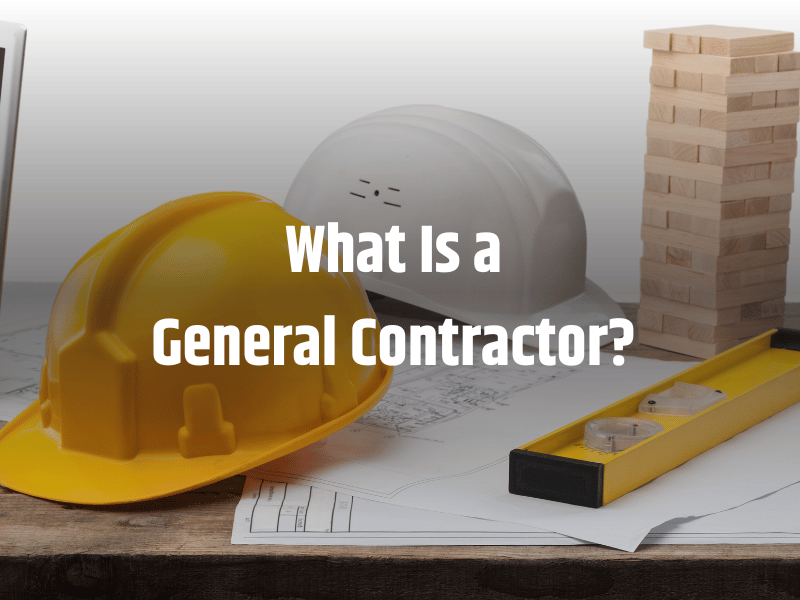
What Is a General Contractor?
At S&E Remodeling, we know construction projects can be overwhelming. Whether you’re remodeling a bathroom or building a new home from scratch, one of the first questions you may ask is: what is a general contractor? Understanding the answer is crucial to ensuring your project is completed smoothly, on time, and to high standards. In this blog, we break down everything homeowners need to know about general contractors, their responsibilities, types, legal requirements, and how S&E Remodeling stands out in the construction industry.
Understanding the Role of a General Contractor
Definition and Core Responsibilities
A general contractor (GC) is the licensed professional or company in charge of executing and managing a construction or remodeling project from beginning to end. They are responsible for budgeting, scheduling, hiring subcontractors, acquiring permits, purchasing materials, and ensuring that the entire project complies with building codes and client expectations. Acting as the main point of contact for the project owner, they ensure every aspect of the job moves forward efficiently. This is a foundational aspect of construction management and helps answer the question: what is a general contractor?
General Contractor vs. Subcontractor: Key Differences
Subcontractors are hired by general contractors to perform specific trades like plumbing, electrical, or tile work. Unlike general contractors, subcontractors are not responsible for managing the entire project or multiple vendors. The general contractor oversees all subcontractors, coordinates their schedules, and ensures seamless execution across different phases of construction.
The GC as a Project Manager and Risk Manager
A competent general contractor doesn’t just supervise; they take on the risk involved in construction. From managing timelines and mitigating cost overruns to addressing safety concerns and coordinating inspections, the GC ensures that each detail aligns with the budget, schedule, and legal requirements. They’re also responsible for resolving disputes, handling emergencies, and adjusting workflows to meet unexpected challenges. This dual role of project manager and risk manager is essential in construction management and key to understanding what is a general contractor in practical terms.
Types of General Contractors
Residential General Contractors
Residential general contractors manage home improvement and new home construction projects. At S&E Remodeling, our focus is on high-quality residential remodeling services, including bathrooms, kitchens, decks, and full home renovations. We handle projects that require coordination of multiple trades, permits, inspections, and design input.
Commercial General Contractors
These general contractors specialize in non-residential construction such as office buildings, retail spaces, restaurants, or public buildings. Their projects often involve larger teams, more complex compliance standards, and commercial-grade materials. While S&E Remodeling focuses on residential work, we apply the same level of precision and coordination expected in commercial jobs.
Specialized GCs Based on Project Type or Scope
Some general contractors develop expertise in specific niches. For example, green-certified general contractors focus on eco-friendly and energy-efficient builds, while others may specialize in historical restorations, high-end custom homes, or modular building techniques. Specialized contractors bring deeper knowledge to unique project demands, offering better construction management solutions.
What Does a General Contractor Do?
During Pre-Construction
In the early phase, the general contractor lays the foundation for a successful build.
- Budget development: Collaborating with project owners to develop realistic budgets based on goals, materials, and market pricing.
- Design collaboration: Working alongside architects and designers to align the construction plan with creative and structural feasibility.
- Hiring subcontractors: Vetting licensed, insured tradespeople for tasks like HVAC, electrical, plumbing, and carpentry.
- Securing permits and licenses: Navigating the local regulations and ensuring all required approvals are obtained before work begins.
During Construction
Once the build starts, the general contractor manages all moving parts of the jobsite.
- On-site management: Supervising daily progress, solving real-time issues, and ensuring accountability.
- Scheduling and coordination: Maintaining order among different trades so that every task fits the master timeline.
- Quality control and inspections: Monitoring workmanship standards and preparing for official inspections.
- Managing subcontractors and suppliers: Ensuring materials are delivered on time and subcontractors meet milestones.
- Ensuring safety compliance (OSHA): Creating a secure work environment with proper safety protocols and oversight.
After Construction
Once physical construction concludes, the general contractor ensures successful closure.
- Final walkthrough and punch lists: Identifying and correcting minor flaws or unfinished details.
- Lien waiver collection: Protecting project owners from future financial claims by confirming all subcontractors have been paid.
- Subcontractor payments: Settling all dues to vendors and tradespeople according to the original contract.
- Ensuring compliance and project closeout: Submitting necessary documentation and confirming local government final sign-offs.
When Do You Need a General Contractor?
For Full Home Remodels or Custom Builds
Larger projects require a general contractor to handle the integration of different disciplines—design, construction, compliance, and logistics—under one contract.
When Multiple Trades Must Be Coordinated
If your renovation involves more than one trade (like plumbing, electrical, and tiling), a general contractor ensures they work together in the right order without delays. This coordination is a core responsibility in construction contractors’ services.
To Meet Code, Permit, and Inspection Requirements
Homeowners often underestimate the importance of permits and inspections. A general contractor ensures that your project meets all municipal building codes, avoiding costly rework or penalties. It’s one more reason why people ask: what is a general contractor and why do I need one?
How General Contractors Work with Subcontractors
The GC as the Central Communication Hub
Instead of homeowners coordinating with multiple subcontractors, the general contractor serves as the primary liaison. This minimizes miscommunication, improves scheduling, and allows the project to flow seamlessly.
Subcontractor Bidding and Selection Process
General contractors issue bid packages to vetted subcontractors, review each bid for pricing and scope accuracy, and select the most qualified. This process helps control costs and ensures high standards. It’s a key function in general contracting.
Quality Assurance and Accountability
General contractors are responsible for tracking progress, inspecting the work, and holding subcontractors accountable. This ensures the final build matches your expectations and legal standards while keeping up with industry compliance. These responsibilities help define what is a general contractor beyond just a job title.
Licensing and Legal Requirements for General Contractors
State and Local Licensing Rules
In Washington, all general contractors must register with the Department of Labor & Industries. S&E Remodeling is fully licensed and adheres strictly to all regulatory expectations under license number SEREMRI822BE.
Insurance, Bonding, and Safety Compliance
A licensed general contractor carries liability insurance and worker’s compensation, protecting both the homeowner and the workers. They are also bonded to cover potential contract breaches or unfinished work. Having proper insurance is a basic requirement for general contractors construction services.
Why Licensing Protects Homeowners
Working with a licensed general contractor provides legal protection. It also means the contractor has passed exams, met financial requirements, and demonstrated proficiency in construction law, codes, and safety standards. These regulations are enforced by the state and monitored during every construction project.
The Bidding Process Explained
Hard Bid vs. Negotiated Contract
- Hard bid: The general contractor submits a fixed-price proposal based on project specifications and drawings. Best for well-defined projects.
- Negotiated contract: Project owners and general contractors work collaboratively to develop scope, schedule, and costs. This offers flexibility and stronger partnerships.
GC’s Role in Reviewing Designs and Scoping Trades
The general contractor interprets architectural plans to break down the scope into trade packages, identify overlaps, and ensure comprehensive coverage before assigning work. This depth of involvement is central to understanding what is a general contractor in real-world applications.
How Costs, Risk, and Profit Margins Are Calculated
Costs include material, labor, equipment, permits, and overhead. General contractors calculate markups based on job complexity, timeline risks, and market conditions to ensure profitability while offering fair pricing. This is vital in understanding how general contractors make financial decisions in project management.
How General Contractors Make Money
Lump-Sum Contracts
This fixed-fee model simplifies budgeting for project owners. The general contractor agrees to complete the work for one set amount, which includes all costs and profit.
Cost-Plus or Time-and-Materials Contracts
The project owner pays for actual job costs plus a fee (percentage or fixed amount) to the general contractor. It’s ideal for evolving or undefined scopes.
Managing Overhead, Risk, and Margin
Experienced general contractors like S&E Remodeling invest time in accurate forecasting and jobsite oversight to balance risk while staying within budget and deadline. Managing overhead and maintaining healthy profit margins are essential for contractor business success.
The Importance of Hiring the Right General Contractor
Reducing Delays, Mistakes, and Budget Overruns
General contractors bring structure and oversight, minimizing missteps that can escalate costs or cause significant delays. Their contractor role ensures better efficiency and fewer disruptions.
Navigating Inspections and Regulatory Requirements
With evolving codes and city-specific rules, an experienced general contractor ensures compliance, schedules inspections, and addresses issues proactively.
Coordinating Every Phase from Demo to Final Finish
Your general contractor is involved from demolition through final finishes, making sure everything—from permits to paint—is done to your satisfaction. This complete coordination demonstrates true construction management expertise and illustrates what is a general contractor capable of when hired for end-to-end project delivery.
Why S&E Remodeling is a Trusted Choice for General Contracting
Experience in Residential Remodeling
Since 2018, we’ve proudly remodeled homes across Western Washington. Our expertise spans bathrooms, kitchens, decks, and whole-home renovations. We are prime contractors trusted by homeowners.
Seamless Project Management from Design to Completion
We manage every aspect of your project—from permits and planning to material selection and final inspection—allowing you to enjoy the results stress-free.
A Proven Process for Quality, Safety, and Timely Delivery
- All workers undergo job-specific training and certification
- Fully licensed and insured (License: SEREMRI822BE)
- Use of brand-new, industry-approved tools and equipment
- High-grade materials sourced directly from manufacturers
- Commitment to transparency, timelines, and craftsmanship
Contact S&E Remodeling
S&E Remodeling Inc. is more than a remodeling company. Since our founding by Yaniv Livnat, we’ve been a family-owned business rooted in honesty, hard work, and client satisfaction. Serving Western Washington and the Puget Sound region, we specialize in turning houses into dream homes through thoughtful remodeling and expert project management.
Every crew member at S&E Remodeling goes through rigorous training and certification before working in the field. This allows us to deliver consistent quality on every project. Our company is fully licensed and certified by the Washington Department of Labor & Industries, and we proudly operate under license number SEREMRI822BE.
We never compromise on quality. All equipment is modern and well-maintained, and materials are sourced straight from manufacturers. This lets us offer competitive pricing while maintaining the highest standards of workmanship. As experienced contractors construction professionals, we know what it takes to deliver superior results.
Call (253) 364-4458 to schedule a consultation and let us show you why S&E Remodeling is the right general contractor for your next project. If you’re still asking what is a general contractor, let our team demonstrate the answer through reliable service and expert construction.

